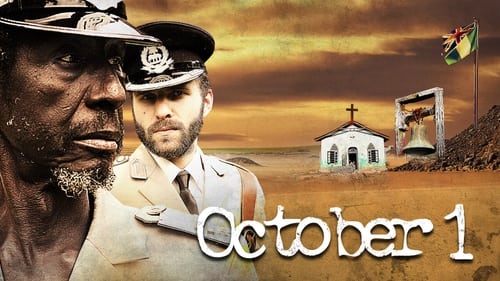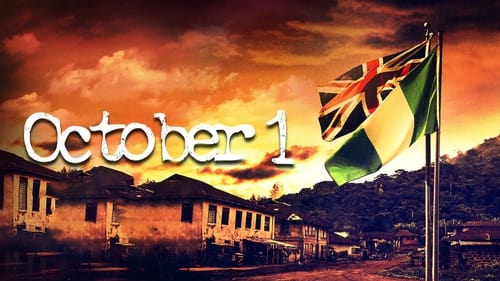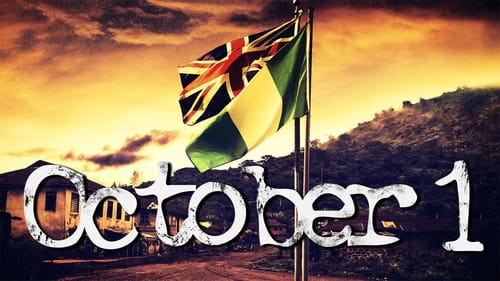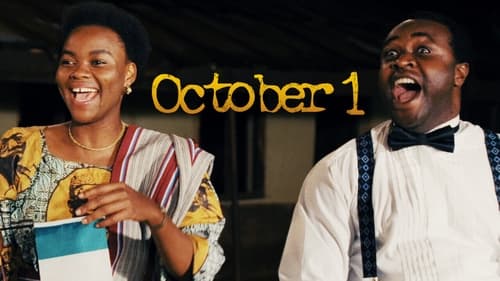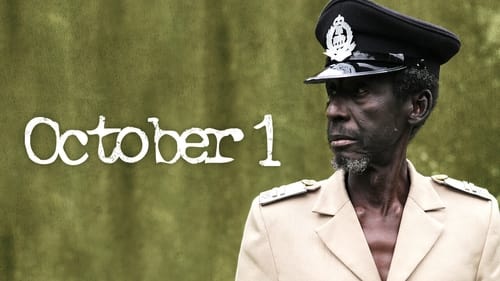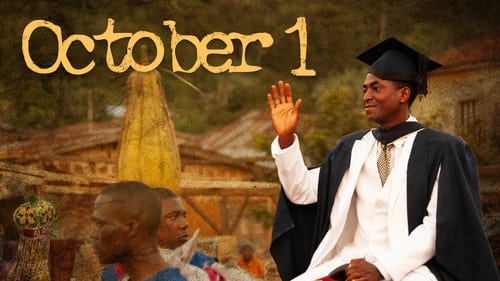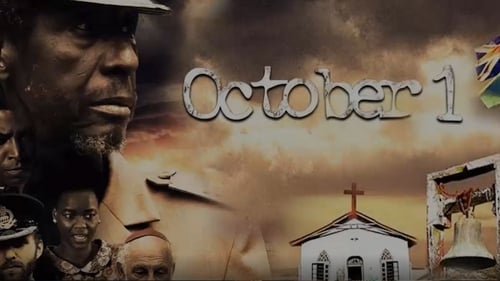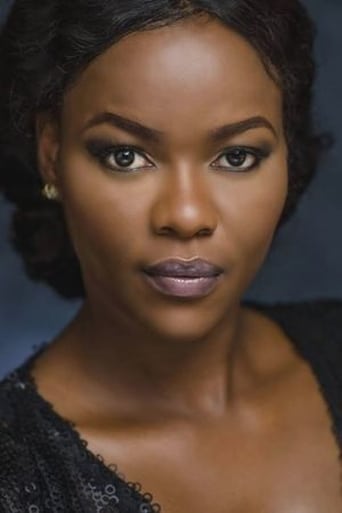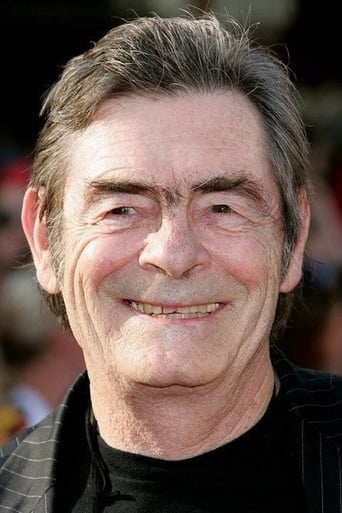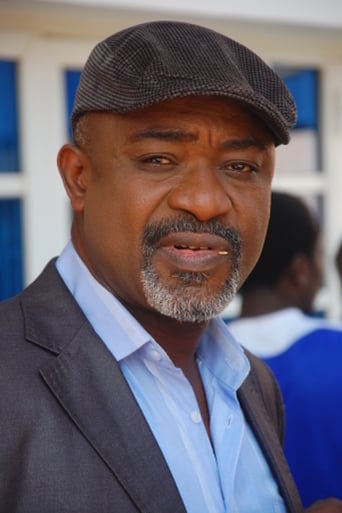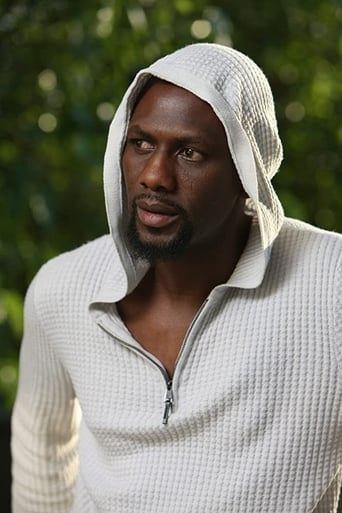Platicsco
Good story, Not enough for a whole film
Beystiman
It's fun, it's light, [but] it has a hard time when its tries to get heavy.
Salubfoto
It's an amazing and heartbreaking story.
Rexanne
It’s sentimental, ridiculously long and only occasionally funny
SuccessAkpojotor
October 1, kudos to Babalola the script writer, had all elements of a detective story woven around when Nigeria jostled for her independence from the British crown who had subjugated her for years, exploiting her resources to build her commonwealth.Back to October 1: there was a perfect crime (s), wrongly accused suspects, a believable and intelligent detective and good red herrings that smelled so good the best detective from the future would be derailed. BUT...The culprit's motive for murdering his victim's were far fetched. Chrissakes, what was he (the writer) thinking?A child, with others, was sexually abused by a Roman Catholic priest, he matures into an adult, has a good life (?) and he returns to his native land to start kiling young women... A plausible thing would have been that he takes out his revenge on Roman Catholic priests, or even luring innocent men into his trap and kills them. Not women. But it's the script writer's story, he decides everything in the creation of his.Howbeit, October 1 was okay.
deladogla
Kunle Afolayan's October 1 serves us poignant paradox of how far we have come but, tellingly, how rooted we are to the murky leech infested waters of colonialism of whence. Afolayan's film uses a latter-day colonial setting as a canvas for a mystery of violence that engulfs a small town in the month preceding the end of British occupation.The script by Tunde Babalola is a tremendous novelty as much as it is an indictment. This is the most poignant and only Pan-African film I've seen make rounds. It is gushing with the detail and art design of whence from the quaint highlife tunes to 60s apparel and the chilling totems of British occupation. We find haughty British officials, the sharp contrast of the Union Jack flying over the green environs and indigenes along with the prominent standing of the Queen some thousand miles away from Buckingham. Never has the seemingly innocuous portrait of Queen Elizabeth conveyed such weight filmed with overbearing intimidation. A chunk of the setting bears eerily similarity to contemporary society. On the one hand we recognize the ostensive timelessness of how culture is projected by song, dance, beliefs etc. On the other hand we recognise a culture of education that remains steadfast to the neglect and dysfunction of pre-independence. The only thing that has changed is the national anthem.There is a middle ground, an ambivalence, found in the people we encounter with regards to points of communication, religion and identity. The film is well aware of this ambivalence and the fact of it being the only real change brought on by colonial occupation and subsequent liberation to mostly negative consequences. The central setting of Akote typifies this in that it is a trading post and the meeting points of culture, ethnicity, religion etc. I say mostly negative but we are treated to scenes in a bar owned by an albino serving men and women, northerners and southerners, Igbo and Yoruba. This diversity goes to serve as a conduit of tension as the film unravels fuelling a sense of cynicism brought on by one of the film's characters in response to Nigeria's independence. Afolayan isn't as subtle as he could be in this regard getting a little too preachy but a chilling sense of poignancy lingers. Hindsight is crystal – almost a crystal ball taking into consideration the pathology left behind by the bane of Western occupation.I have rambled on about Afolayan's world building but there is a thread here: Police inspector Danladi Waziri (Sadiq Daba) is dispatched to Akote in Western Nigeria to investigate a couple of murders by his British superior (Nick Rhys). Independence is a month away and the British would rather no major cases remain on file when the baton is passed. Virgin ladies are being raped, strangled and left with peculiar markings which leads to suspicions of a serial killer in this small rural community. More bodies drop confirming this assessment. The film is well plotted like a conventional whodunit. Waziri arrives in Akote, asks a lot of questions and does some investigating with the local Sergeant Sunday Afonja (Kayode Aderupoko) at his side. The camera gets to look suspiciously at people and throw some red herrings our way but the film shows its hand towards the final act and positions itself as an exploration of the rot at the crux of the murders.The detail may have suggested an overly serious tone but affairs here almost mirror the jolly simplicity of life on the country side. I was reminded of Fargo. There are no cool looking inspectors trying crack the case. Waziri doesn't carry an intellectual swagger with a smoking pipe in hand. He sports the standard baggy uniform (with shorts) over his old skinny frail body and rides around on a "buzanga Volvo". Much like the heavily pregnant Marge Gunderson in Fargo, don't let the surface get in the way. Waziri knows his police work. He comes to Akote with a reputation of closing a high profile murder involving a British man, of course – I did say high profile. Daba plays Waziri well managing to project some authority through this seemingly unassuming persona. A look into Waziri's eyes and we can tell he's been around the block. We can also sense some weariness and guilt. Perhaps Afolyan uses him to project a spirit of neo-colonialism.Waziri doesn't speak the native tongue hear relies on interpretation from Afonja – almost like a British man. He is all about due process willing to overstep sacred instructions and culture of this society in the name of the law. There is subtle but disquieting naiveté at work in his character. The most excruciating moment sees him impose authority on a restless mob in the name of the Queen with Nigeria all but independent. More depth can be found in the character of Prince Aderopo played by the smooth Demola Adedoyin (who probably leads this film under a lesser director). He is always clad in white as the film plays out. His initial scenes have him returning as Akote's first ever graduate of the full western education system. Later on he dances to (what sounded like) western music playing on his gramophone. The excitement of Independence beckons but Aderopo looks to more time in the West pursuing a Master's degree and he doesn't have nice things to say about Nigeria's future as a sovereign state.Whilst October 1 is gushing with rich detail it is not without its flaws. The film starts to lag in the final act as the testing running time becomes apparent. Redundant flashbacks and exposition feature and a little more confidence in the audience would not have been remiss. There is still a tremendous amount to behold – character depth, nuance and subtext oozing out of the script, stellar cinematic DP work and Afolayan's strong vision.
olliemankz
When I was a kid in the early 60's, I'd come down to the breakfast table and find my stepfather reading about the Congo. For a little while, it was all over the news. I don't know if the Congo occupied the news in other metropolitan areas the way it did in Detroit. It really meant something there, probably because of Detroit's large black population.I remember as I glimpsed the blaring headlines and asked my stepfather what it all meant words like "independence." There was the name Patrice Lumumba and the seeming inevitability that he would be killed for his cause. The movie October 1 is set in Nigeria and does not mention Lumumba or necessarily take sides -- it is assumed everyone's for independence except possibly for the grudgingly accepting British empire forces who are still running things while planning to begin handing over power to a new Nigerian government, on Oct. 1, 1960. But the countrymen's anticipation of this ground-breaking transition is a still slightly uncertain backdrop to a detective trying to solve a string of murders and find his footing among his rulers.I started the movie expecting it to be interestingly amateurish as have been some movies I have seen from that part of the world ... peeks into a lifestyle that no matter how nascent are little different from anyone else's. Made in Africa by Africans, the movie seemed to have grass-roots production values but then I realized that was only because they reflected the milieu. In Nigeria in 1960 people still lived very close to the land. There would be a lot of foliage and open-air buildings to be seen. I loved the fabrics out of which women made cottony dresses featuring large emblematic portraits of their leaders.But as the movie progressed, I realized it did not suffer in production values at all; in fact, it was superior in some ways to anything I have seen coming out of the West lately. Perhaps the filmmakers did need to be creative for lack of a budget but I liked the way sometimes something, a sound, for instance, would get a special treatment, almost as if we could see the shock waves extending out on the screen. It has been a couple of months since I saw the movie and I have been wishing to write this review all that time so, please forgive me, I don't remember exactly the events being so depicted, they might have been a sound, or an emotion, or both. But I found the effects simple but evocative,I'm not going to go into the plot other than to say that some of its turns are surprising and adult and may not be suitable for children. But I think you'll like our detective, a man of dignity and sense and who is quite thin. Whoa. He is quite appealing. Winterbottom is dashing, too -- keep an eye out for Nick Rhys. But in Inspector Danny Waziri, Sadiq Daba nails the role of a lifetime. I have to add that I think Tunde Babalola's script was brilliant, understanding so well both sides of the transitiion and knowing when to crescendo. Even though the gaining of independence is not explained like a history lesson, it is an interesting snapshot of how the countrymen responded and an intriguing context for the movie's events and the detective's courage. October 1 is a great little movie. P.S. Maybe director Kunle Afolayan would like to make one of his future projects a biography of Lumumba, if it wouldn't be too controversial. From surveying a Wikipedia entry about Lumumba, he seems to have fit my cursory childhood take on him as a tragic leader.
Thugs_cry
Nigerian movies are renowned for poor story lines, bad acting, many errors, etc. But this one actually proves that the Nigerian movies industry can deliver great movies to the global audience.I thought I would sleep while watching or pause it at the quarter to watch the rest later. But the movie actually gripped me. October 1, paints a whole lot about Nigeria in the 1960s.The storyline was superb. Didn't know that Nigeria could actually have a serial killer story that can be compared with major Hollywood blockbusters but Kunle Afolayan did it.A must see, if you like thrillers and diversity.

